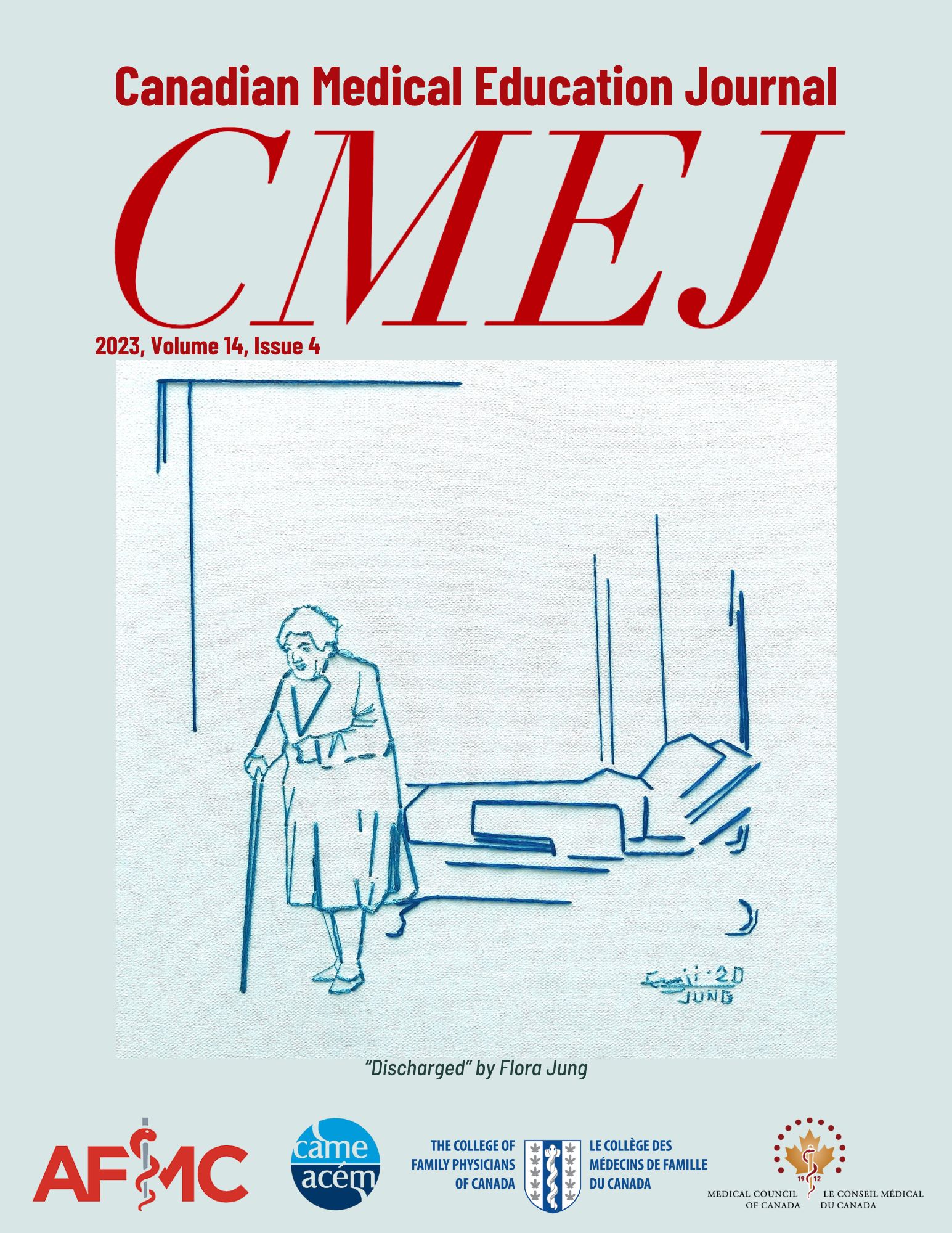Practical and customizable study strategies for clerkship year success
DOI:
https://doi.org/10.36834/cmej.75072Abstract
The transition from a pre-clerkship curriculum to the clerkship year presents a need to re-examine and modify study strategies for clinical subject examinations and ultimately the United States Medical License Examination STEP 2 Clinical Knowledge. Efficient and effective learning are keys in balancing the significantly increased responsibility of patient care and decreased time for examination preparation.
We describe several customizable study approaches, advice on selecting resources, and methods for applying the educational framework of deliberate practice and corrective feedback to learning during a medical student’s clerkship years. These strategies focus on intentional and outcome-driven self-assessments to identify and patch knowledge gaps tailored to the clerkship year that will empower learners.
References
O’Brien B, Cooke M, Irby DM. Perceptions and attributions of third year learner struggles in clerkships: do learners and clerkship directors agree? Acad Med. 2007; 82(10):970-8. https://doi.org10.1097/ACM.0b013e31814a4fd5 DOI: https://doi.org/10.1097/ACM.0b013e31814a4fd5
Prince K, Boshuizen H, van der Vleuten C, Scherpbier A. Students’ opinions about their preparation for clinical practice. Med Educ. 2005; 39(7): 704-12. https://doi.org10.1111/u.1365-2929.2005.02207. DOI: https://doi.org/10.1111/j.1365-2929.2005.02207.x
Surmon L, Bialocerkowski A, Hu W. Perceptions of preparedness for the first medical clerkship: a systematic review and synthesis. BMC Med Educ. 2016; 16:89. https://doi.org10.1186/s12909-016-0615-3. DOI: https://doi.org/10.1186/s12909-016-0615-3
Volk AS, Rhudy AK, Marturano MN, et al. Best study strategy for the NBME clinical science surgery exam. J Surg Educ. 2019; 76(6): 1539-45. https://doi.org10.1016/j.surg.2019.05.012. DOI: https://doi.org/10.1016/j.jsurg.2019.05.012
Eder T, Richter J, Scheiter K, et al. How to support dental students in reading radiographs: effects of a gaze-based compare-and-contrast intervention. Adv Health Sci Educ Theory Pract. 2021; 26(1): 159-81. https://doi.org10.1007/s10459-020-009974-w. DOI: https://doi.org/10.1007/s10459-020-09975-w
Simonian MJ, Brand D. Assessing the efficacy of and preference for positive and corrective feedback. J Appl Behav Anal. 2022 Jun; 55(3): 727-45. https://doi.org10.1002/jaba.911. DOI: https://doi.org/10.1002/jaba.911
Ericsson KA, Krampe RT, Tesch-Romer C. The role of deliberate practice in the acquisition of expert performance. Psychological Review. 1993; 100(3): 363-406. https://doi.org10.1098/rsos.190327. DOI: https://doi.org/10.1037/0033-295X.100.3.363
Ericsson KA. Acquisition and maintenance of medical expertise: a perspective from the expert-performance approach with deliberate practice. Acad Med. 2015; 90(11): 1471-86. https://doi.org10.1097/ACM.0000000000000939. DOI: https://doi.org/10.1097/ACM.0000000000000939
Davila-Cervantes A, Foulds JL, Gomaa NA, et al. Experiences of faculty members giving corrective feedback to medical trainees in a clinical setting. J Contin Educ Health Prof. 2021; 41(1): 24-30. https://doi.org10./1097/CEH DOI: https://doi.org/10.1097/CEH.0000000000000322
Zhao C, Hu Y. Reflections on study strategy modifications using cognitive load theory and dual processing theory in the first year of medical school. Med Sci Educ. 2021; 31: 813-18. https://doi.org10.1007/s40670-020-01198. DOI: https://doi.org/10.1007/s40670-020-01198-3
Borsheim B, Ledford C, Zitelny E, et al. Preparation for the United States medical licensing examinations in the face of COVID-19. Med Sci Educ. 2020; 30(3): 1267-1272. https://doi.org10.1007/s40670-020-01011-1. DOI: https://doi.org/10.1007/s40670-020-01011-1
Garino A. Ready, willing and able: a model to explain successful use of feedback. Adv Health Sci Educ Theory Pract. 2020; 25(2): 337-61. https://link.springer.com/article/10.1007/s10459-019-09924- DOI: https://doi.org/10.1007/s10459-019-09924-2
Le T, Bhushan V, Deol M, et al. First Aid for the USMLE Step 2 CK, Tenth Edition. New York: McGraw-Hill Education; 2018. https://www.mhebooklibrary.com/doi/book/10.1036/9781260440300
Agabegi ED, Agabegi SS. Step-Up to Medicine. 4th ed. Philadelphia: Wolters Kluwer; 2016.
Toy EC, Briscoe D, Britton B, et al. Case files: family medicine. 5th ed. New York: McGraw Hill Education; 2020. https://accessmedicine.mhmedical.com/cases.aspx?groupid=373.
Downloads
Published
Issue
Section
License
Copyright (c) 2023 Hannah Johnston, Caroline Zhao, Yenya Hu

This work is licensed under a Creative Commons Attribution-NonCommercial-NoDerivatives 4.0 International License.
Submission of an original manuscript to the Canadian Medical Education Journal will be taken to mean that it represents original work not previously published, that it is not being considered elsewhere for publication. If accepted for publication, it will be published online and it will not be published elsewhere in the same form, for commercial purposes, in any language, without the consent of the publisher.
Authors who publish in the Canadian Medical Education Journal agree to release their articles under the Creative Commons Attribution-Noncommercial-No Derivative Works 4.0 Canada Licence. This licence allows anyone to copy and distribute the article for non-commercial purposes provided that appropriate attribution is given. For details of the rights an author grants users of their work, please see the licence summary and the full licence.











